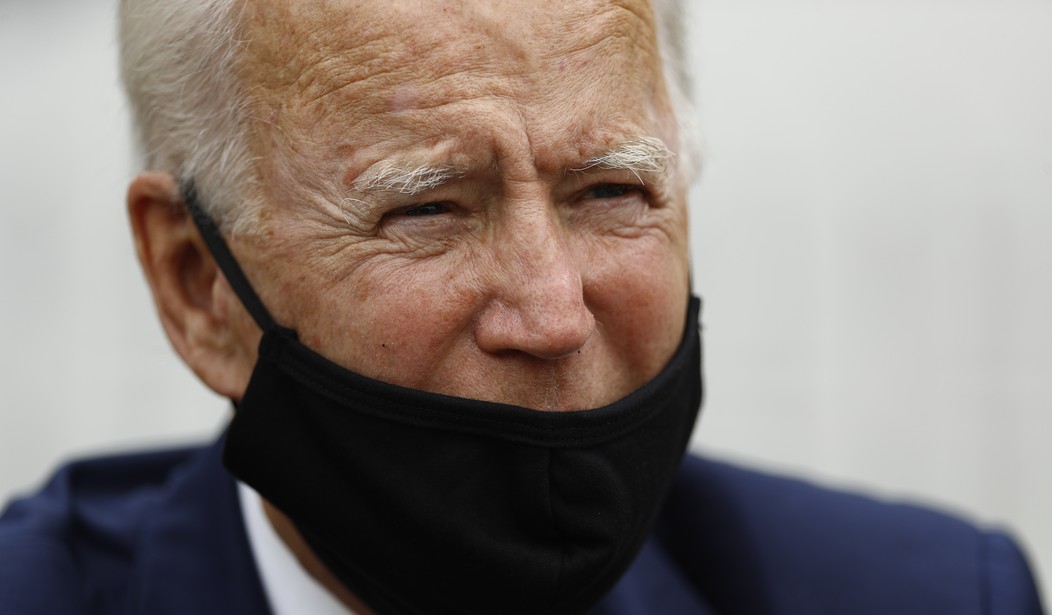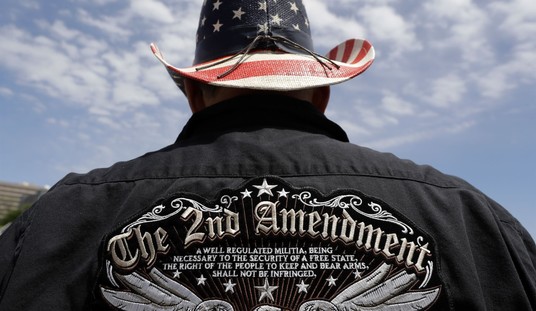Joe Biden has once again demonstrated he knows little about U.S. history and the Second Amendment thanks to a recent sit down with Wired in which he was asked about his support for gun control.
Biden responded by launching into a rambling tirade directed at AR-15s, which he says “should be outlawed.” After all, he continued, “From the very beginning you weren’t allowed to have certain weapons. You weren’t allowed to own a cannon during the Revolutionary War as an individual.”
Oh, Joe, you silly, silly man. During the Revolutionary War, not only could individuals own cannons, they could own an entire ship equipped with them. Privateering was an important part of the war effort, especially since the new United States had virtually no real navy of its own. As the National Park Service helpfully explains:
Privateering encompassed two levels of participation. A Letter of Marque authorized armed merchant ships to challenge any likely enemy vessel that crossed its path during the course of a commercial voyage. A Privateer Commission was issued to vessels, called privateers or cruisers, whose primary objective was to disrupt enemy shipping. The ideal target was an unarmed, or lightly armed, commercial ship.
With the passage of an act on March 23, 1776, the Continental Congress formalized the commissioning process, and uniform rules of conduct were established. Owners of privateers had to post monetary bonds to ensure their proper conduct under the regulations.
Although the documentation is incomplete, about 1,700 Letters of Marque, issued on a per-voyage basis, were granted during the American Revolution. Nearly 800 vessels were commissioned as privateers and are credited with capturing or destroying about 600 British ships.
Vessels of every size and description were pressed into service as privateers. At the upper end of the scale was the 600-ton, 26-gun ship Caesar of Boston. At the other end was the 8-ton boat Defense of Falmouth, Massachusetts. Crews ranged from a few men in a whaleboat to more than 200 aboard a large, fully equipped privateer. Two-masted schooners and brigantines were most often used in privateering, reflecting the kind of vessels available to American seamen.
Politifact got wind of Biden’s claim and reached out to several historians and experts on the right to bear arms in early America, but site couldn’t find anyone who actually agreed with Biden’s assertion. Instead, they all agreed that it was highly unlikely that there were any laws on the books banning the possession of field pieces.
“It seems highly unlikely that there were restrictions on the private ownership” of cannons, said Julie Anne Sweet, a historian and director of military studies at Baylor University.
David Kopel, the research director and Second Amendment project director at the free-market Independence Institute, agreed. “I am not aware of a ban on any arm in colonial America,” he said. “There were controls on people or locations, but not bans on types of arms.”
Politifact also reached out to Biden campaign to see if it could cite any specific example of cannons being banned during the Revolutionary War. Instead of answering the question, the campaign simply resorted to boilerplate anti-gun talking points.
But the Biden campaign was unable to point to a specific law. “The vice president’s point is that to help end the tragic epidemic of mass shootings that is taking so many American lives, we need to ban weapons of war from our streets,” the campaign told PolitiFact.
Of course semi-automatic AR-15s aren’t weapons of war, but they’re quite popular among civilians. In fact, they’re the most commonly sold rifle in the country today. When Biden talks about outlawing the possession of these rifles, he’s talking about turning tens of millions of Americans into criminals for simply maintaining possession of the guns they already own. Biden’s grasp on American history may be tenuous, but his commitment to criminalizing the exercise of a constitutionally-protected right is firm.









Join the conversation as a VIP Member